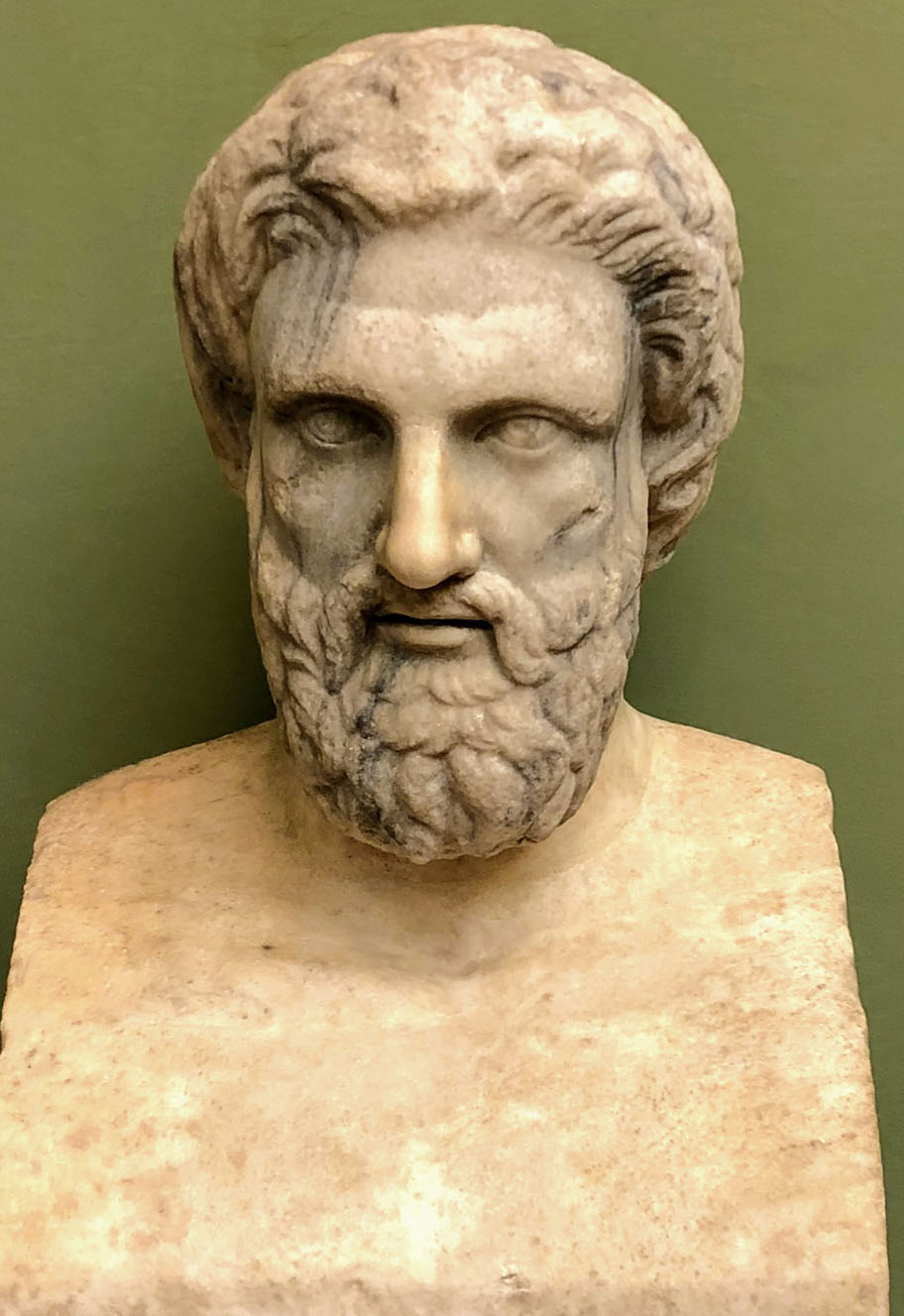Aristophanes
Born:
C. 446 BCE
Died:
C. 386 BCE
Aristophanes was a renowned ancient Greek playwright and comic poet, often hailed as the "Father of Comedy." He wrote during a period known as the Golden Age of Athens, and his comedies provide valuable insights into ancient Greece's culture, politics, and social life. Aristophanes' works are characterized by their sharp wit, humor, and satirical commentary on contemporary events. Here are some key aspects of Aristophanes' life and contributions:
Life and Background: Aristophanes was born in Athens, Greece, around 446 BCE, and little is known about his early life. He lived during a tumultuous period that included the Peloponnesian War, and his plays often reflect the political and social issues of the time.
Comic Dramas: Aristophanes wrote approximately 40 plays, of which only 11 survive in complete form. His works were primarily comedic plays, and he is best known for his contributions to Old Comedy, a genre characterized by its satirical and irreverent style.
Political and Social Satire: Aristophanes' comedies often targeted prominent political figures, philosophers, and societal norms of his day. He used humor and exaggeration to criticize and lampoon various aspects of Athenian life. Some of his plays, such as "Lysistrata," dealt with the consequences of war, while others, like "The Clouds," satirized the intellectual trends of the time.
Lysistrata: "Lysistrata" is one of Aristophanes' most famous plays. It tells the story of women from both sides of the Peloponnesian War who, in an effort to end the conflict, decide to withhold sexual privileges from their husbands until a peace treaty is reached.
The Clouds: "The Clouds" is a satirical play that mocks the teachings of the philosopher Socrates. Aristophanes portrays Socrates as a sophist who engages in absurd intellectual exercises, contributing to the philosopher's later trial and execution.
Peace and Frogs: "Peace" is a comedy that imagines an Athenian farmer's journey to the heavens on a giant dung beetle to plead for peace. It reflects a desire for an end to the Peloponnesian War. "Frogs" is another notable play that involves a journey to the underworld by the god Dionysus to bring back the deceased playwright Euripides. The play serves as a literary competition between Euripides and Aeschylus.
Awards and Recognition: Aristophanes won several times in the dramatic competitions of the City Dionysia, a prestigious Athenian festival celebrating the god Dionysus.
Death: Aristophanes likely died around 386 BCE. His legacy endured, and his plays continued to be appreciated and performed in later centuries.

Quick Facts
- Aristophanes wrote approximately 40 plays, of which only 11 survive in complete form.
- His works were primarily comedic plays, and he is best known for his contributions to Old Comedy.
- Aristophanes' comedies often targeted prominent political figures, philosophers, and societal norms of his day.
- Some of his notable plays include "Lysistrata" and "The Clouds."
- Aristophanes won several times in the dramatic competitions of the City Dionysia.
Further Reading
Art &
Architecture
Ancient Greek art and architecture, with its harmonious proportions and timeless elegance, continue to inspire awe and admiration millennia later.
Discover
Greek Mythology & Mythical Characters
Greek mythology, a rich tapestry of gods, heroes, and mythical creatures, captivates the imagination with its tales of love, betrayal, and epic adventures that delve into the depths of the human psyche.
Discover
Ancient Greek History
Ancient Greek history, marked by remarkable achievements in democracy, philosophy, and warfare, shaped the foundation of Western civilization, leaving an indelible legacy of innovation and cultural influence that continues to resonate to this day.
Discover
Ancient Greek Olympics
The ancient Greek Olympics, held in Olympia every four years, celebrated athleticism, unity, and cultural pride, serving as a testament to the enduring spirit of competition and excellence that transcends time and borders.
Discover
Ancient Greek Wars
Ancient Greek wars, such as the Persian Wars and the Peloponnesian War, were pivotal conflicts that shaped the course of history, highlighting the struggle for power, independence, and the clash of civilizations in the ancient Mediterranean world.
Discover
Ancient Greek Culture and Society
Ancient Greek culture and society, characterized by its emphasis on art, philosophy, and civic engagement, fostered a vibrant intellectual and social landscape where innovation flourished, democracy thrived, and the pursuit of knowledge and excellence was celebrated as fundamental values of civilized life.
Discover